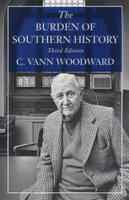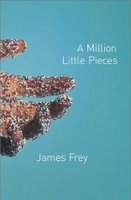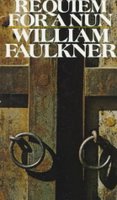Oprah had James Frey on her show this morning, along with his publisher Nan A. Talese, and she angrily confronted him about producing a fictional memoir and "duping" her and her viewers.
From
USA Today:
Oprah confronts Frey about disputed memoir CHICAGO (AP) — In a stunning switch from dismissive to disgusted, Oprah Winfrey took on one of her chosen authors, James Frey, accusing him on live television of lying about A Million Little Pieces and letting down the many fans of his memoir of addiction and recovery.
"I feel duped," she said Thursday on her syndicated talk show. "But more importantly, I feel that you betrayed millions of readers." Frey, who found himself booed in the same Chicago studio where he had been embraced not long ago, acknowledged that he had lied.
A sometimes angry, sometimes tearful Winfrey asked Frey why he "felt the need to lie." Audience members often groaned and gasped at Frey's halting, stuttered admissions that certain facts and characters had been "altered" but that the essence of his memoir was real.
"I don't think it is a novel," Frey said of his book, which had initially been offered to publishers, and rejected by many, as fiction. "I still think it's a memoir."
Thursday's broadcast, rare proof that the contents of a book can lead to great tabloid TV, marked an abrupt reversal from the cozy chat two weeks ago on Larry King Live, when Winfrey phoned in to support Frey and label alleged fabrications as "much ado about nothing."
"I left the impression that the truth is not important," Winfrey said Thursday of last week's call, saying that "e-mail after e-mail" from supporters of the book had cast a "cloud" over her judgment.
On a segment that also featured the book's publisher, Nan A. Talese of Doubleday, Frey was questioned about various parts of his book, from the three-month jail sentence he now says he never served to undergoing dental surgery without Novocain, a story he no longer clearly recalls.
Winfrey, whose apparent indifference to the memoir's accuracy led to intense criticism, including angry e-mails on her website, subjected Frey to a virtual page-by-page interrogation. No longer, as she told King, was she saying that emotional truth mattered more than the facts. "Mr. Bravado Tough Guy," she mockingly called the author whose book she had enshrined last fall and whose reputation she had recently saved.
Talese and Doubleday were not spared. Winfrey noted that her staff had been alerted to possible discrepancies in Frey's book, only to be assured by the publisher. She lectured Talese on her responsibilities: "I'm trusting you, the publisher, to categorize this book whether as fiction or autobiographical or memoir."
Talese, an industry veteran whose many authors have included Ian McEwan, George Plimpton and Thomas Cahill, told Winfrey that editors who saw the book raised no questions and that A Million Pieces received a legal vetting. She acknowledged that the book had not been fact-checked, something many publishers say they have little time to do.
In a statement issued later Thursday, Doubleday, which initially had called the allegations not worth looking into, said it had "sadly come to the realization that a number of facts have been altered and incidents embellished."
The publisher said an author's note was being prepared that will be sent to booksellers to insert into current editions and that any future printings would be delayed until the note is included in the actual book. But no changes in the text are planned and the book will remain classified as a memoir.
Winfrey's words also were harsher than her actions. She did not unleash publishing's version of the death penalty: revoking her endorsement, a devastating and unprecedented action. Only once before has she turned, relatively mildly, on a book club pick: In 2001, she withdrew her invitation for Jonathan Franzen, author of The Corrections, to appear on her show after the novelist expressed ambivalence over her endorsement.
Her current choice is Elie Wiesel's classic, Night, a memoir with a concise, literary style that has led some to call it a novel.
Three years ago, Frey stepped up as publishing's latest and baddest bad boy, with tattooed initials on his arm — "FTBSITTTD" — bearing a defiant and unprintable message. Winfrey's selection made his book a million seller and Frey a hero to many who believed his story was theirs.
"In order to get through the experience of the addiction, I thought of myself as being tougher than I was and badder than I was, and it helped me cope," Frey said Thursday on Winfrey's show. "And when I was writing the book, instead of being as introspective as I should have been, I clung to that image."
Frey's career will likely never recover, although so far he has not suffered for sales. His book, a million seller thanks to Winfrey, remained in the top 5 Thursday on Amazon.com. A second memoir, My Friend Leonard, was in the top 20.
He currently has a two-book deal with Riverhead Books, an imprint of Penguin Group USA, with a novel about contemporary Los Angeles due in 2007. The publisher did not have an immediate comment Thursday.
Beyond Frey, and his publishers, stories of suffering may themselves take a fall. Frey's saga comes at a time when the work, and even the identities, of such alleged hard-luck authors as J.T. Leroy and Nasdijj have been questioned. St. Martin's Press recently added a disclaimer to an upcoming book by Augusten Burroughs, another memoirist who has been challenged.
"I think for a while, this will make people careful," said Ashbel Green, a senior editor at Alfred A. Knopf.
"But this question of fact checking is a complicated one. At The New Yorker and Time and Newsweek, you have experienced people who know where to go and what's right and what's wrong. We don't. There's been a traditional dependency on the author."
I think Oprah is fantastic. She could have just ignored the controversy and left it with the statement she made on
Larry King Live. I think it was extremely bold for her to confront Frey on her show, and I applaud her for it.


